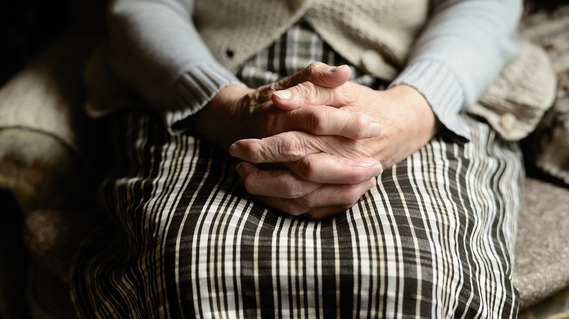When others feel unable to ask God for help
When someone is in the extremes with God, either a lukewarm or horrific torment condition, they are probably unable to ask God for help. This should inspire us to provide physical or emotional help for the individual. Many times this is not possible for them. In that case, we should pray for them.
A simple 'Glory Be' is sufficient.
Image by congerdesign
When others feel unable to ask God for help
By Lou Occhi
Memorial of the Immaculate Heart of Mary
2 Corinthians 5:14-21
Luke 2:41-51
When Jesus came into this world, everything changed. Prior to His coming, God was in heaven, shaping the world for his arrival. Now, He takes human form and lives with us. Jesus went through gestation in our Blessed Mother’s womb. He went through all the trials and tribulations of childhood, adulthood, death on a cross, and resurrection from the dead. Through His life, death, and resurrection He redeemed us from our original sin and gave us the opportunity for eternal life with Him in heaven.
When you were a child, did you ever decide it would be a good idea to play hide and seek in a department store? Were you surprised when your parents were very upset with you? As an adult, did you ever lose a child in a department store, and when you found him, you were overwhelmed with relief?
Well, we have that very situation in today’s gospel reading. Mary, Joseph, and Jesus, now 12 years old, had traveled to Jerusalem for the feast of Passover. When Mary and Joseph left the temple, Jesus stayed behind. Mary and Joseph assumed he was with His cousins playing and began their journey back to Nazareth. Two days into the journey, they realized Jesus was not with them. Now they had to travel, by themselves, back to Jerusalem. You can only imagine their anxiety. When they found Him, He was in the midst of a class led by the rabbis.
In those days, the rabbis would conduct a class by posing a question and discussing it in light of the scriptures. Mary and Joseph were astonished at the sophistication of Jesus’ questions and answers. Mary tells Jesus how worried they had been and asks why He had done this. Jesus simply replies, “Why were you looking for me? Did you not know that I must be in my Father’s house.” They then journeyed back to Nazareth, and He was obedient to them. My first impression is that everything returned to normal.
On further reflection, it occurred to me that this was now a new normal. Jesus was now more than just their little boy to His parents. Mary and Joseph surely understood that, at twelve years old, Jesus had passed into a new phase of His life as the Son of God. At 13, a Jewish boy becomes Bar Mitzvah. Bar Mitzvah is Hebrew for “son of commandment.” From that point on, the boy has all the rights and obligations of a Jewish adult. Now Jesus is no longer a child. His childhood is now in the past and, in a way, is dead and gone.
In today’s first reading, Paul talks about the change which occurred for all humanity through Jesus’ taking on human form. He tells us, “. . . once we have come to the conviction that one died for all, therefore all have died. He indeed died for all, so that those who live might no longer live for themselves but for Him who for their sake died and was raised”. I understand that one died for all. What exactly does “all have died” mean? Paul continues, “Consequently, from now on, we regard no one according to the flesh, yet now we know him so no longer. So, whoever is in Christ is a new creation: the old things have passed away, behold, new things have come”.
In essence, everything that came before we were in Christ is dead. This parallels the experience of the apostles and disciples when they were reborn in the Spirit. This is also the same as Paul’s transformation from a persecutor of Christians to one of the great Christians in history. This is also like the transformation that Jesus experienced through His Bar Mitzvah. The past has come and gone, and all things are now made new. Each of us was made new in our baptism. This was not possible before Jesus came to us.
Until the resurrection, all souls went into limbo. According to St. Thomas Aquinas, Limbo was one of the upper layers of hell. After the resurrection, the souls in Limbo ascended into heaven. Christ has made us new through His life, death, and resurrection. In this new life, Christ calls us to continue the work that He began, and from this point on, Christ is the center of our lives. This brings to mind Jesus telling His disciples in John 15:15, “I will no longer call you servants, for the servant does not know what his Lord is doing. But I have called you friends, because everything whatsoever that I have heard from my Father, I have made known to you.”
Paul goes on to say, “God has reconciled us to Himself through Christ and given us the ministry of reconciliation…God was reconciling the world to Himself in Christ, not counting their trespasses against them and entrusting to us the message of reconciliation”. We are now asked to be ambassadors for Christ and continue to bring the message of reconciliation to others.
I have often heard that we should see Christ in everyone. This is difficult to do. This is especially true when you see someone that is filthy, on drugs, and staggering around the street. When we see someone else, we see the flesh. We really should try to visualize the soul within the flesh regardless of their physical, emotional, or mental condition. The soul of another may be in ecstasy with the love of God, in a lukewarm relationship with God, in horrific torment, or somewhere in between. When someone is in a lukewarm or horrific torment condition, they are probably unable to ask God for help. This should inspire us to provide physical or emotional help for the individual. Many times this is not possible. In that case, we should pray for them. A simple 'Glory Be' is sufficient.
If you are so compelled to pray for someone, a rosary works very well when praying for others. When you see an ambulance racing down the street with lights flashing and siren blaring, say a short prayer for whoever the ambulance is for and for their family. This practice does not need to be limited to strangers we see on the street. Rather it should extend to all our relatives and friends. Our priest in Mississippi said that you probably know nothing of what the person sitting next to you in the pew is going through. I once had a friend sitting next to me at church, and everything seemed normal. Later, I found out that his wife had been having an affair, and he was going through a divorce. He had a wife, a nice house, and children. Now, that was all being torn apart. I was completely unaware of the turmoil he was going through.
Paul ends the chapter with, “We implore you on behalf of Christ, be reconciled to God. For our sake, He made Him (Jesus) to be sin who did not know sin, so that we might become righteousness of God in Him.”
As usual, the closing of this reading is in the next chapter. Paul says, “May we never give offense to anyone so that our ministry may not be disparaged. But in all things, let us exhibit ourselves as ministers of God with great patience through tribulation, difficulties, and distress.” This is as true today as it was when Paul said it.

